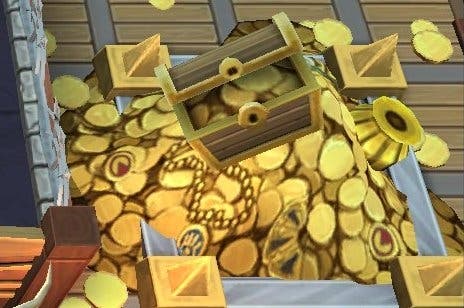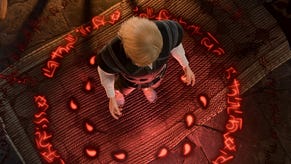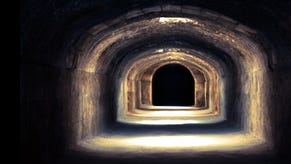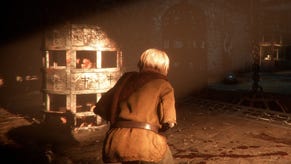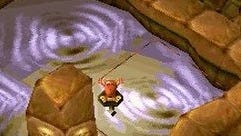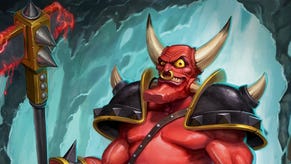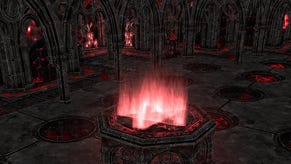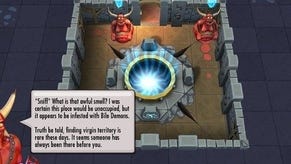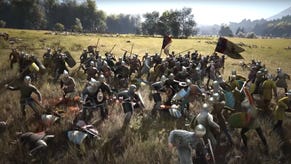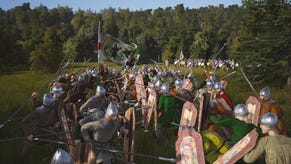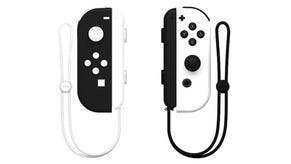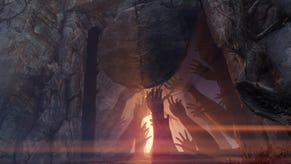Will EA learn from the terrible Dungeon Keeper mobile game?
EA boss Andrew Wilson promises, yes.
For many, the Dungeon Keeper reboot was yet another depressing example of a treasured game ruined by greedy corporations and their money-grabbing microtransactions.
The in-app purchase-fuelled game was slammed by critics, and fans of Bullfrog and designer Peter Molyneux's much-loved 1997 original.
Dan Whitehead dug up a 1/10 in Eurogamer's Dungeon Keeper review, saying: "Free-to-play is not automatically a bad thing. There are plenty of examples of great games - hardcore PC games - that use micro-transactions, and do so while building an engaged and devoted fanbase. League of Legends. World of Tanks. Team Fortress 2. There are clearly better templates to follow.
"Yet what we have here is the shell of Bullfrog's pioneering strategy game, hollowed out and filled up with what is essentially a beat-for-beat clone of Clash of Clans. Every function, every mechanism, every online feature has been tried and tested already by Supercell's money machine and EA is following behind, drooling like a Pavlovian dog. That's what stings the most: not that Dungeon Keeper has gone free-to-play, but that it's done so in such soulless fashion."
Dungeon Keeper was mired in controversy from the get-go, with its negative reviews, user backlash and then, somewhat hilariously, a scandal over EA Mobile's attempt to filter out 1-4 star in-app reviews of Dungeon Keeper from the Google Play Store. When EA shut down Dungeon Keeper's developer Mythic, known for the Dark Age of Camelot and Warhammer Online massively multiplayer games, was anyone surprised?
So when I sat down with EA boss Andrew Wilson at E3 earlier this month, I wanted to know if the company had learned any lessons from the Dungeon Keeper debacle, and whether the overwhelming negative reaction had reached the very top.
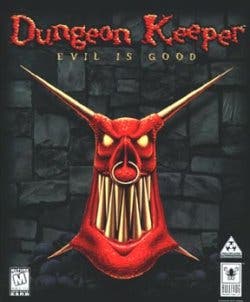
Wilson, who became EA CEO in September 2013, began his response by promising "open and transparent conversations" with Eurogamer on Dungeon Keeper. Previously, he had told me of how he had tried to "re-instill a player first culture" at EA when he starting work as boss.
"We are as a company, loved by many, but for some, we've had some challenges on a player level," he said.
"We'd come off the back of some negativity around some of the things we were doing, and, quite frankly, some of the things we weren't doing well enough. You come into a company that is inherently good, that is full of inherently good people who come to work to deliver great things every day, but just isn't always manifesting itself in the way you would expect it to - that comes with some challenges. We've been working on that stuff.
"I wanted to re-instill a player first culture inside the organisation. At the end of the day we are nothing but for the players that play our games. We're not above that. We're not below that. That is what we are. In some areas of the company we had been distracted from that somewhat."
I suggested Dungeon Keeper, which has a Metascore of 42, might have been one of those EA missteps Wilson had described.
In his defence, Wilson held his hands up, calling what went down with Dungeon Keeper "a shame". He even admitted EA had "misjudged" its economy.
"For new players, it was kind of a cool game," he began. "For people who'd grown up playing Dungeon Keeper there was a disconnect there. In that aspect we didn't walk that line as well as we could have. And that's a shame."
Wilson said Dungeon Keeper had sparked two types of feedback among players. One, that it didn't feel like Dungeon Keeper as old school fans remembered it, and two, that the free-to-play model it employed didn't make players feel like they were getting value for their money.
"We misjudged the economy," he admitted.
While it's good to hear the feedback to Dungeon Keeper made its way up to the boss of EA, what's important is what he plans to do about it.
Wilson insisted EA had learned much from the reaction to Dungeon Keeper, saying, "you have to be very careful when you reinvent IP for a new audience that has a very particular place in the hearts and minds and memories of an existing audience." He added he had personally offered feedback of his own to EA's developers following the release of the game.
"You have to think about value irrespective of the increment of spend that is being made," he said. "And as we look forward, the two lessons we get are, one, where you are dealing with IP that has existed in the past, even though you're reinventing it for a new audience, you have to do your best to stay true to its essence. And that's a challenge. The Star Trek J.J. Abrams was very different from the first season I watched, but I still felt good about it.
"The second is, when you're thinking about any business model, premium, subscription, free-to-play, value has to exist. Whether it's a dollar, $10, $100 or $1000, you have to delivering value, and always err on the side of delivering more value, not less."
Whether gamers and indeed the industry will trust EA if it does attempt to re-invent more of its extensive back catalogue of much-loved intellectual property remains to be seen. Remember, EA has the rights to the likes of Populous, Magic Carpet and Theme Park buried deep within its vaults.
And it remains to be seen whether some of the creators of those beloved games will trust EA, too. For Peter Molyneux, Dungeon Keeper's original designer, the game sparked mixed emotions.
"The first thing I did in Dungeon Keeper is, ah, great, imps, digging out," he told Eurogamer.
"And I clicked on the wrong block and it came up and said two hours to dig away. And I thought what the hell is going on here?"
Molyneux accused Dungeon Keeper of being, ultimately, a badly balanced game, and that this, coupled with the fact Dungeon Keeper is remembered so fondly, meant the backlash was particularly vociferous.
"I don't think anyone would be so against the monetisation loops if they came in a lot later and a lot more gentle," he pondered. "But it is so in your face."
Molyneux said there were some aspects of Dungeon keeper that he liked, such as the magic effects ("if they were in the original game they would have made the game better"), the audio and the return of imp slapping, but the negatives outweighed the positives.
"We all agree those bits seem to be wiped out as soon as you get to this ridiculous climb in what the game asks of you. It's just so ridiculous. They're so greedy for forcing you to spend money it's scary."
Who is to blame for that? Don't blame the developers, Molyneux pleaded. They're just doing their job. Instead, point the finger at "analytics people" who impose tried and trusted monetisation techniques on the gameplay, forcing players to do this and that at this time and then in order to get X and Y number of gems. It's a carefully crafted, heavily researched dark art that players of many free mobile games are familiar with. Indeed, for millions of gamers this kind of monetisation is all they know.
"It seems to me like, why would a designer ever want that from one of their games?" Molyneux said "It seems as if there's some argument under the surface."
"This is what I thought: they forgot the spirit of what Dungeon Keeper was. It was good to be bad. Getting people to giggle with the pleasure of being bad. It was a mixture of an RTS and a tower defense turned on its head. And rather than taking that further they stuck it there.
"Part of me thinks, god, if I'd just been involved a little bit... And to be fair to those guys by the way, they did say to me before they released it, have you had a look at it? But I was too busy to look at it. I felt bad about that."
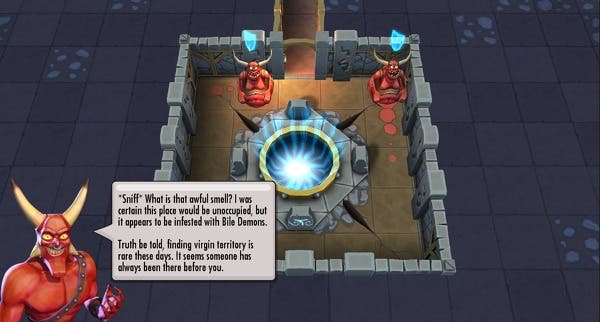
For most of us, the proof that EA will listen to constructive criticism, as Wilson has promised to do, will be found in future titles. Many are and will be skeptical, and I'm sure some will view Wilson's latest comments as an attempt to dig EA out of yet another PR hole. But there is evidence that the company may be steering towards the right track.
In May Eurogamer reviewed the FIFA World beta. FIFA World is a free-to-play version of the main FIFA series for PC, and includes microtransactions. Tom Bramwell wrote:
"FIFA World is an impressively solid entry into the world of PC free-to-play, and not at all the sort of game that brings to mind EA's recent fumbles with SimCity or the disastrously monetised Dungeon Keeper. The game itself takes some of the best parts of the main FIFA series and repackages them in a way that even hardcore fans can appreciate, although they will find the standard of opposition is generally lower, while the monetisation in its current form is far from the gouging monstrosity some may have anticipated."
As our interview ended, Wilson highlighted FIFA World as an example of how EA will do free-to-play better. Fingers crossed it's not a one-off.
